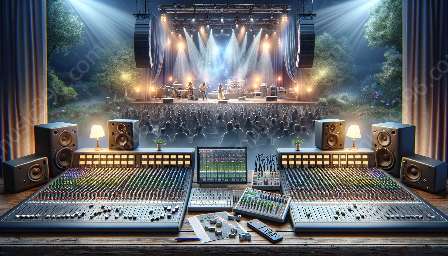As technology progresses, the field of audio production is constantly evolving. One area of particular interest is noise reduction, where there is a growing focus on developing advanced methods to improve sound quality. In this article, we will explore the potential future advancements in noise reduction for audio production, with a focus on its compatibility with CD and audio technologies.
1. Artificial Intelligence and Machine Learning
With the advancements in artificial intelligence and machine learning, the future of noise reduction in audio production looks promising. AI algorithms can be trained to identify and remove various types of unwanted noise, such as background hum, clicks, and hisses, without affecting the audio quality. These technologies are expected to revolutionize the way noise reduction is currently performed, leading to more efficient and precise results.
2. Adaptive Noise Cancellation
Adaptive noise cancellation is another area that holds great potential for the future of audio production. By utilizing advanced signal processing techniques, adaptive noise cancellation systems can dynamically adjust to the changing acoustic environment, effectively eliminating unwanted noise in real time. This technology is likely to become more widespread in audio equipment, offering improved noise reduction capabilities for both professional and consumer applications.
3. Quantum Noise Reduction
Quantum noise reduction is an emerging concept that harnesses quantum mechanics principles to reduce noise at the most fundamental level. By utilizing quantum algorithms and computational techniques, it is possible to achieve unprecedented levels of noise reduction in audio signals. Although this technology is currently in its early stages, it holds immense promise for the future of audio production and is expected to contribute to the development of next-generation audio formats, including CDs and high-resolution audio.
4. Integration with High-Resolution Audio Formats
As the demand for high-fidelity audio continues to grow, future noise reduction advancements are likely to be tailored to integrate seamlessly with high-resolution audio formats, including those used in CDs. This integration will enable the preservation of audio quality while effectively reducing background noise, resulting in pristine sound reproduction that meets the evolving standards of audio enthusiasts.
5. Enhanced Psychoacoustic Noise Models
Advanced psychoacoustic noise models have the potential to revolutionize the way noise reduction is perceived and implemented. By leveraging our understanding of human perception and cognitive processes, future advancements in noise reduction can be optimized to preserve the subjective quality of audio while minimizing perceptible noise artifacts. This approach will be essential for ensuring that noise reduction techniques complement the listening experience across various audio mediums, including CDs.
In conclusion, the potential future advancements in noise reduction for audio production are vast and promising. With the continuous evolution of technology and the increasing demand for high-quality audio, the industry is primed for significant advancements in noise reduction methods. These advancements are set to revolutionize the way audio is produced, mastered, and consumed, with a focus on delivering pristine sound quality across a range of formats, including CDs and other audio mediums.






























